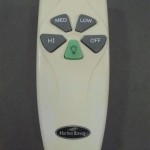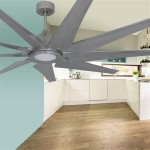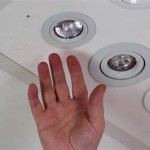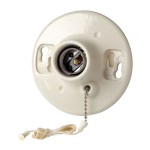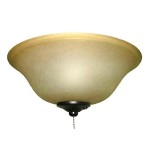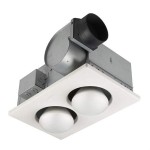Recessed Lighting for Kitchen Ceiling: The Essential Guide
When it comes to kitchen lighting, recessed lighting is a popular choice for its versatility, efficiency, and sleek appearance. Whether you're remodeling your kitchen or building a new one, incorporating recessed lighting into your design can greatly enhance the functionality and aesthetics of your space.
In this guide, we will delve into the essential aspects of recessed lighting for kitchen ceilings, providing you with valuable information to make informed decisions about your lighting plan.
Types of Recessed Lighting
There are two main types of recessed lighting fixtures:
- Reflector Trims: Designed with a reflective surface that directs light downward, reflector trims provide focused illumination.
- Baffle Trims: Feature a non-reflective surface and a recessed bulb that creates a diffused and softer light emission.
Choosing the Right Size and Wattage
The size and wattage of your recessed lighting fixtures should be carefully considered based on the size of your kitchen and the desired level of illumination.
For general lighting, 4-inch fixtures with 60-75-watt bulbs are a good option. For task lighting, such as over the sink or cooktop, consider using 6-inch fixtures with 90-100-watt bulbs.
Spacing and Placement
Proper spacing and placement are crucial for achieving optimal lighting distribution. For general lighting, space fixtures evenly across the ceiling, typically 4-6 feet apart.
For task lighting, place fixtures directly above the designated work areas, such as 12-18 inches above the sink or cooktop.
Dimming Options
Dimming capabilities allow you to adjust the lighting intensity to create different ambiances and accommodate various tasks.
Choose fixtures that are compatible with dimmers and install dimmable LED bulbs or halogen bulbs.
Energy Efficiency
LED recessed lighting is the most energy-efficient option, using up to 80% less energy than traditional incandescent bulbs while providing a longer lifespan.
Consider using LED fixtures and bulbs to reduce energy consumption and save on your electricity bills.
Installation Tips
For proper installation, follow these tips:
- Mark the fixture locations and cut the ceiling holes with a hole saw.
- Connect the electrical wires according to the fixture's instructions.
- Insert the fixture into the hole and secure it with springs or screws.
- Attach the trim of your choice.
- Test the lights to ensure they are functioning correctly.
Conclusion
Recessed lighting is a versatile and functional solution for kitchen ceiling illumination. By considering the types, size, spacing, dimming options, and energy efficiency, you can create a lighting plan that meets the specific needs of your kitchen.
Whether you're aiming for general illumination or task-specific lighting, recessed lighting can provide the optimal light distribution and enhance the overall comfort and functionality of your kitchen space.

Recessed Lighting Guide The Home Depot

How Much Does It Cost To Install Recessed Lighting In 2024

How To Update Old Kitchen Lights Recessedlighting Com

Open Up Your Kitchen With Recessed Lighting Lightstyle Of Tampa Bay

Recessed Lighting Guide Lowe S

What Is Recessed Lighting Flip The Switch

8 Pack Led Recessed Lighting 4 Inch Ceiling Lights With Junction Box 5 100 Dimmable Etl Certified 2700k Soft White Com

Learn How Recessed Lighting Can Transform Your Kitchen

Recessed Light Not Working Troubleshooting The Most Common Issues Petersen Electric

Perfect Kitchen Recessed Lighting Mr Potlight
Related Posts

